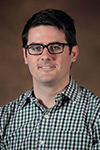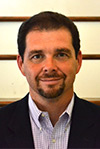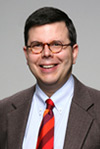Symposium examines influence of Mexican Americans in politics
As the presidential election approaches and topics such as immigration and Mexican American voter turnout receive recurring national attention, the importance of discussing these issues becomes paramount, said Joe Locke, a University of Houston-Victoria assistant professor of history.
That’s why the 30th annual Martín de León Symposium will focus on the theme Mexican American Influence in Politics. The event will feature presentations by Carlos Blanton, a history professor at Texas A&M University, and David Leal, a government and Mexican American studies professor at the University of Texas at Austin. The free event will begin at 1 p.m. Sept. 17 in the UHV University North Walker Auditorium, 3007 N. Ben Wilson St.
The focus of the event is to tie the past and present together, said Locke, the symposium committee chair. During every election season, there is speculation about whether the Hispanic population in Texas eventually will “turn Texas blue” by voting Democratic.
“Immigration and the influence of the Mexican American population are always on the minds of those involved in politics, especially in Texas,” Locke said. “It’s a subject that’s hovering over our politics, and we thought this is an appropriate time to bring those thoughts to the forefront.”
The story of Mexican American involvement in politics is a rich one that includes the civil rights movement, Blanton said. Although the recent spotlight from the presidential campaign has raised some interest in the topic, it has been a part of Texas’ history from the beginning.
“People don’t often talk about the history and legacy of Mexican Americans and how they’ve influenced politics,” he said. “A good, basic knowledge of that history is important for our state and our nation. It’s part of who we are as Texans. It’s important to have a background beyond what we hear in the 24-hour news cycle.”
Blanton’s presentation will focus on the history of Mexican Americans in politics. One particularly influential figure was George I. Sánchez, a former professor and leader in the civil rights effort and a fixture in politics from the 1940s to the 1960s. He was the national president of the League of United Latin American Citizens and was heavily involved in politics. Blanton wrote a biography about him two years ago.
“He is one of those people who shows how important it is to remember and not discount the importance of the tradition of Mexican Americans using politics to enact change in areas including education, voting and businesses,” Blanton said.
After Blanton’s look at the history of Mexican Americans in politics, Leal will focus more on the contemporary perspective and influence on politics. Although there is a definite demographic change in the U.S., that shift does not necessarily mean that a growing population will change the balance of political power.
“Many people think numbers equal power, but it’s actually a more complicated story,” Leal said. “For instance, while the Hispanic population is growing overall, where they are located also matters. Hispanics have large numbers in some solid red and blue states, but this may not be enough to influence electoral outcomes. The smaller number of Hispanics living in the battleground states may in fact have the most influence on the Electoral College vote.”
As an example, Leal pointed to the 2000 election between Al Gore and George W. Bush. Although Gore won the popular vote, Bush won because he received more Electoral College votes.
In addition, while Hispanics vote at relatively low rates, Leal said that this reflects factors such as limited access to education or age, which generally shape participation for all groups. Over time, these numbers will improve for Hispanics, which will increase their voter turnout.
“As the population changes and demographics shift in the U.S., more people are beginning to wonder how that will influence the balance of power and impact policies,” he said.
The symposium is presented by the UHV School of Arts & Sciences and the De León Club of Victoria. Named after Victoria founder Martín de León, the De León Club is a nonprofit organization dedicated to promoting business and encouraging civic participation to improve the quality of life in Victoria.
The University of Houston-Victoria, located in the heart of the Coastal Bend region since 1973 in Victoria, Texas, offers courses leading to more than 80 academic programs in the schools of Arts & Sciences; Business Administration; and Education, Health Professions & Human Development. UHV provides face-to-face classes at its Victoria campus, as well as an instructional site in Katy, Texas, and online classes that students can take from anywhere. UHV supports the American Association of State Colleges and Universities Opportunities for All initiative to increase awareness about state colleges and universities and the important role they have in providing a high-quality and accessible education to an increasingly diverse student population, as well as contributing to regional and state economic development.
Lauren Hightower-Emerson
361-570-4342









